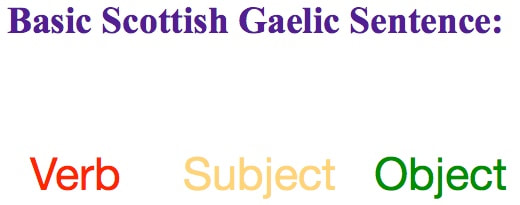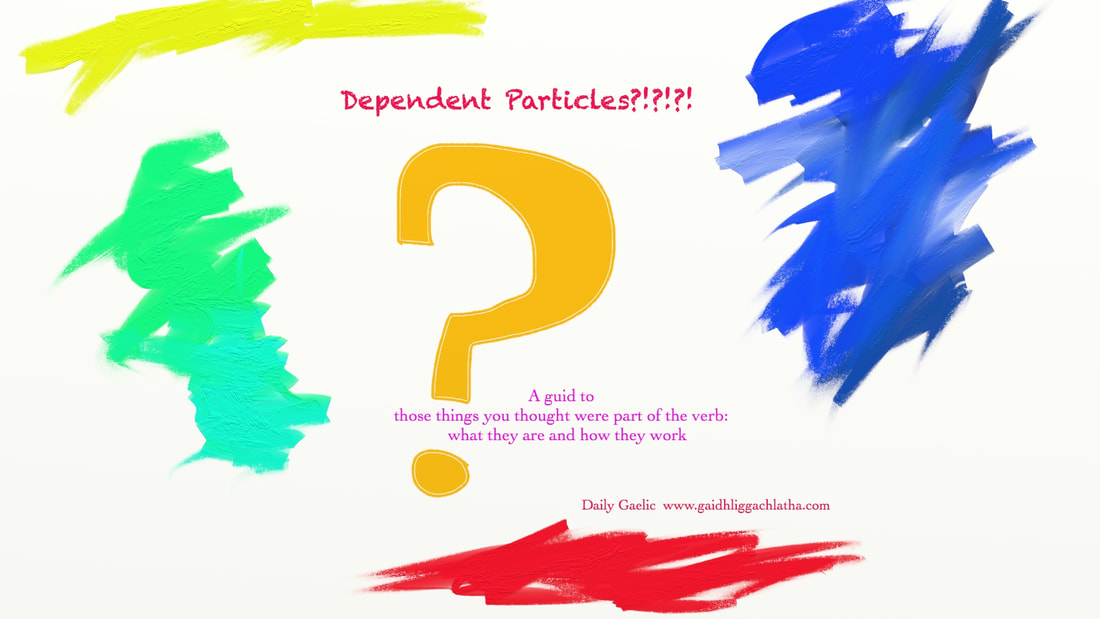|
Probably one of the first things you encountered when starting to learn Gaelic is the idea that verbs work a little different in Gaelic than they do in English and many other European languages.
They don't change with the person they are talking about. They do change with the type of sentence. So you have one form for a positive statements (something is) one for negative statements (something is not) and one each for positive and negative questions (is something? Isn't something). All verbs in Gaelic do this in all tenses but probably the first one you encountered was "Tha" to be. Here is what the four forms of "tha" look like: Tha i brèagha. It is lovely Chan eil i brèagha. It is not lovely A bheil i brèagha? Is it lovely? Nach eil i brèagha? Isn't it lovely? You may have been told that these four can be broken down into two groups, independent (Tha) and dependent ( Chan eil, A bheil, & Nach eil). If you look at this break down you can see that the two groups look rather different from each other. However the forms in the dependent group look very similar, at least the second parts do. This second part is really the dependent form of the verb. The other parts are the dependent particles. They are going to show up with the dependent forms of every verb in every tense, so it is good to get friendly with them from the beginning. So let me introduce them to you: Negative statement particle: Cha or Chan when it is in front of a verb that starts with a vowel. Cha(n) lenites (adds an H to the next word) so watch out for that. This particle lets you know that the sentence you are about to read is a negative statement, so something is not, was not, will not etc. Positive question particle: An or Am when it is in front of a verb that starts with a B,P,F or M. And sometimes it is just A (as in A bheil). This guy lets you know that you are reading a positive question for example: Is it raining? Are we there yet? Negative question particle: Nach just Nach, this one doesn't change. This lets you know that it is starting a negative question like "Didn't you get bread at the store?". Now that you know what these wonderful wee particles are keep and eye out for them. You will see them all over Gaelic sentences. |
Details
AuthorsCaroline has been involved with Gaelic for more than 18 years. She has degrees in Celtic Studies and Gaelic Medium Teaching. Archives
March 2021
Categories
All
|
Proudly powered by Weebly




 RSS Feed
RSS Feed